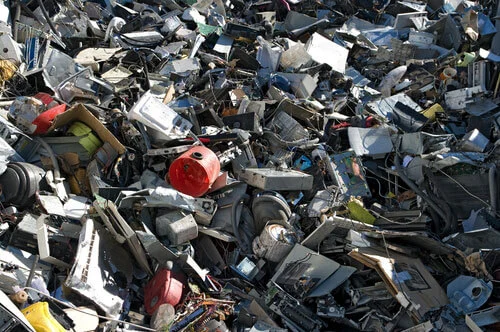The Environmental Toll of Black Friday: A Call for Conscious Consumerism
As the holiday season approaches, the excitement in the air is palpable, marked by the much-anticipated shopping extravaganza known as Black Friday. However, beyond the alluring discounts and doorbuster deals, lies a hidden cost that often goes unnoticed—the significant environmental impact of this consumer-driven phenomenon.
The Consumerism Conundrum
Black Friday, originally an American tradition, has now become a global phenomenon, with retailers worldwide enticing consumers with unbeatable discounts. The frenzy of this shopping spree results in a surge of consumerism, marked by long queues, crowded stores, and a frenetic rush to grab the best deals. This consumer-driven craze, while boosting the economy, comes at a hefty environmental cost.
- E-Waste Proliferation:
One of the most pressing issues linked to Black Friday is the exponential increase in electronic waste. The irresistible deals on the latest gadgets and tech devices lead to a surge in the purchase of electronic goods. As consumers upgrade to newer models, their old devices often end up in landfills, contributing to the growing problem of e-waste. The improper disposal of electronic waste poses serious environmental hazards, releasing harmful chemicals and toxins into the soil and water.
- Packaging Predicament:
The packaging frenzy that accompanies Black Friday exacerbates the already critical issue of excessive packaging waste. Products are often overwrapped in layers of plastic, cardboard, and Styrofoam to attract consumers and ensure the safety of the items during transit. This leads to an overwhelming amount of packaging material being discarded, contributing to the burden on landfills and oceans. The plastic pollution crisis is further fuelled by the demand for single-use items, creating long-lasting consequences for ecosystems and wildlife.
- Carbon Footprint Soars:
The spike in consumerism during Black Friday also translates into a significant increase in the carbon footprint. The mass production of goods, coupled with the transportation and distribution of these products, contributes to greenhouse gas emissions. Whether it’s the manufacturing process or the miles travelled by goods to reach consumers, the environmental toll of this massive consumption spree is undeniable. As consumers flock to physical stores or engage in online shopping, the energy consumption associated with transportation and logistics adds to the overall environmental impact.
- Fast Fashion Fallout:
Black Friday’s impact extends beyond electronics and gadgets, infiltrating the fashion industry with a surge in fast fashion consumption. The demand for cheap, trendy clothing encourages the production of low-quality garments that quickly fall out of favour, leading to a cycle of rapid disposal and replacement. This disposable fashion culture contributes to resource depletion, water pollution from textile manufacturing, and increased textile waste in landfills.
A Call to Action
As the fervour of Black Friday sweeps across the globe, it is imperative for consumers to pause and reflect on the environmental repercussions of their shopping habits. While the allure of unbeatable deals is undeniable, the true cost extends far beyond the price tag. Adopting a more sustainable approach to holiday shopping, such as supporting eco-friendly brands, choosing products with minimal packaging, and embracing the concept of mindful consumption, can contribute to mitigating the environmental impact of Black Friday. Additionally, in the pursuit of conscious consumerism, exploring platforms like Creoate, which connects consumers with sustainable and ethical brands, offers a valuable opportunity to make environmentally responsible choices during the holiday season.
Choosing brands with such values can significantly contribute to lessening the environmental impact of shopping extravaganzas like Black Friday.
In the spirit of the season, let us strive for a more conscientious and sustainable celebration, where the joy of giving doesn’t come at the expense of our planet’s well-being.







